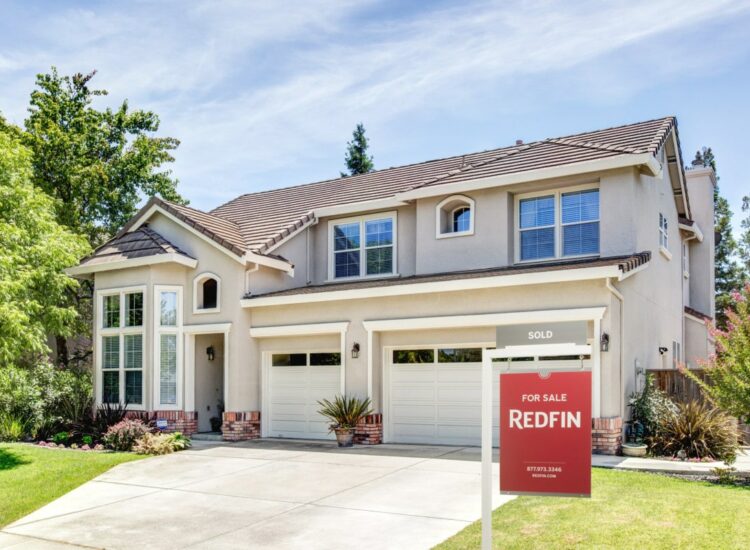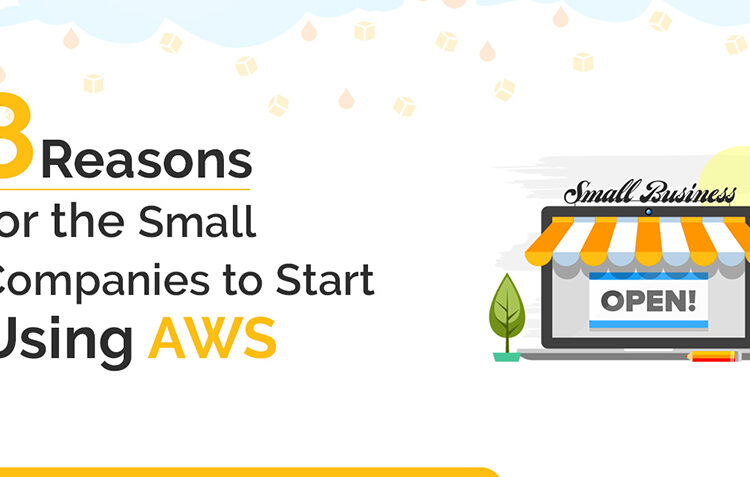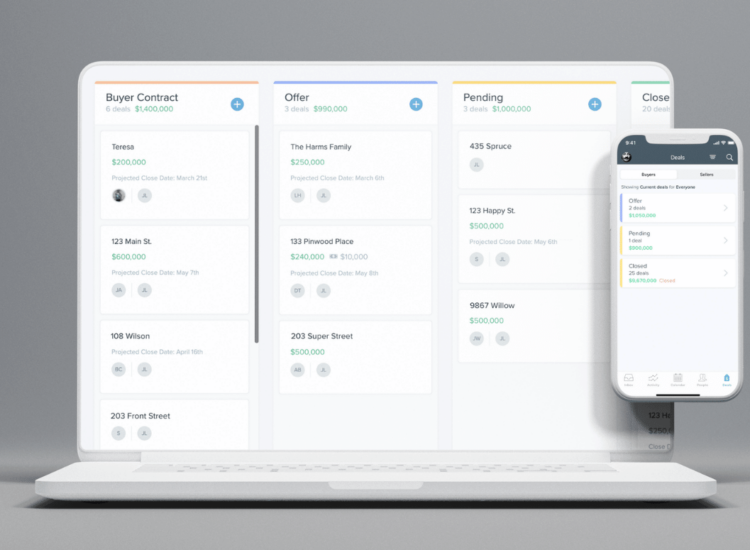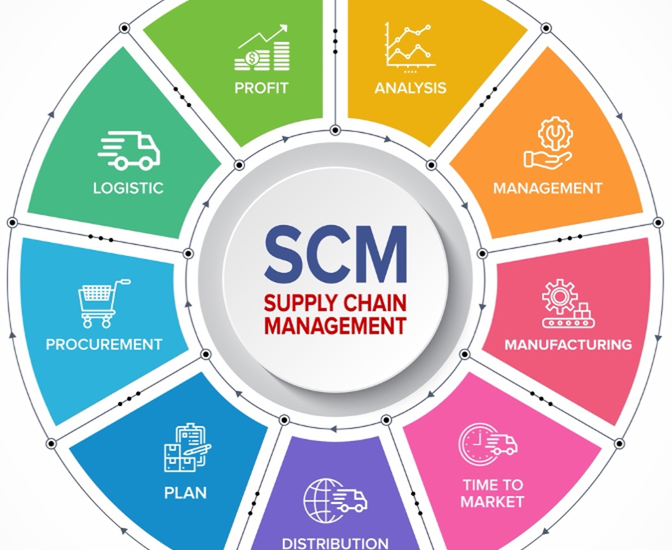In the fast-paced world of commercial real estate, brokers often find themselves managing multiple deals, client inquiries, and an extensive array of property listings. The volume of information can become overwhelming, leading to missed opportunities and inefficiencies. A robust CRM platform can serve as a centralized hub, organizing data, automating workflows, and providing a clear view of all active deals, properties, and client interactions.
Toc
- 1. Why Use the Best CRM for Commercial Real Estate?
- 2. The Impacts of Technology on CRM for Commercial Real Estate
- 3. Key Features of a Commercial Real Estate CRM
- 4. Related articles 01:
- 5. Top CRM Platforms for Commercial Real Estate Brokers
- 6. Related articles 02:
- 7. Choosing the Right CRM for Your Commercial Real Estate Business
- 8. Frequently Asked Questions
- 9. Conclusion
This comprehensive guide delves into the best CRM for commercial real estate brokers in 2024. We will explore the benefits of utilizing a CRM, essential features to look for, top CRM platforms tailored for the commercial real estate sector, and critical factors to consider when making your selection. Whether you’re a seasoned broker or new to the industry, understanding how to choose the right CRM can significantly enhance your business operations.
Why Use the Best CRM for Commercial Real Estate?
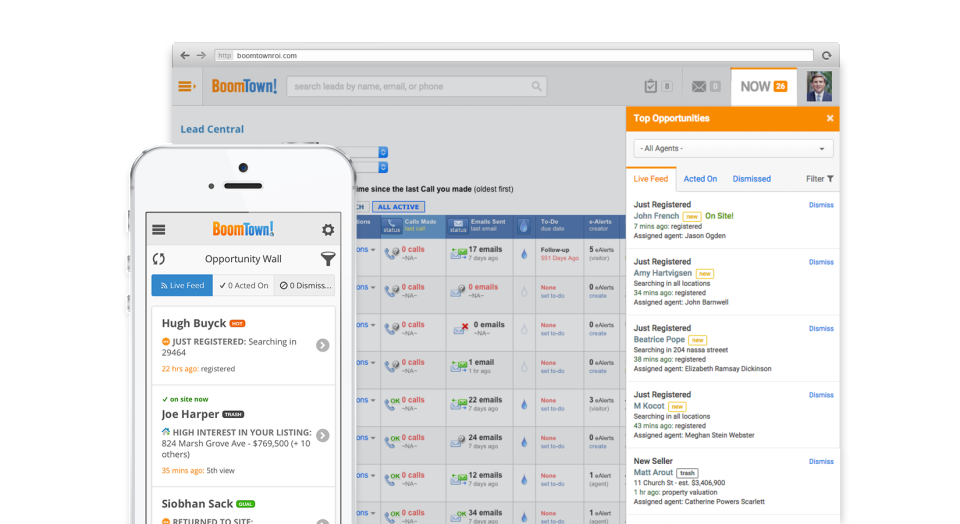
A Customer Relationship Management (CRM) system is vital for commercial real estate brokers, offering a multitude of benefits that can enhance operations and client interactions. Here’s why you should consider adopting the best CRM for commercial real estate:
Streamline Operations
A CRM centralizes client data, manages deals, and automates repetitive tasks like sending follow-up emails, scheduling appointments, and generating reports, significantly increasing efficiency. By having all your data in one place, you can reduce the time spent on administrative tasks and focus more on client engagement and closing deals.
Boost Productivity
By tracking key performance indicators (KPIs) such as lead conversion rates, deal closure times, and client satisfaction, CRMs enable brokers to make data-driven decisions that enhance productivity. For instance, if a broker notices a low conversion rate for a specific property type, they can adjust their marketing efforts or target a different audience.
Enhance Client Relationships
CRMs help nurture leads, personalize communication, and ultimately improve client satisfaction. With features like automated follow-ups and reminders, you can ensure no client is overlooked, fostering long-term relationships. However, some critics argue that relying too heavily on automated communication can make clients feel like just another number.
Increase Revenue
Optimizing lead management, deal tracking, and marketing efforts can lead to closing more deals and generating higher revenue. By automating tasks and providing insights into client behavior, a CRM can help brokers close more deals and increase revenue. For example, a CRM can help identify high-value leads and prioritize their follow-up, ensuring that no potential client is missed.
The Impacts of Technology on CRM for Commercial Real Estate
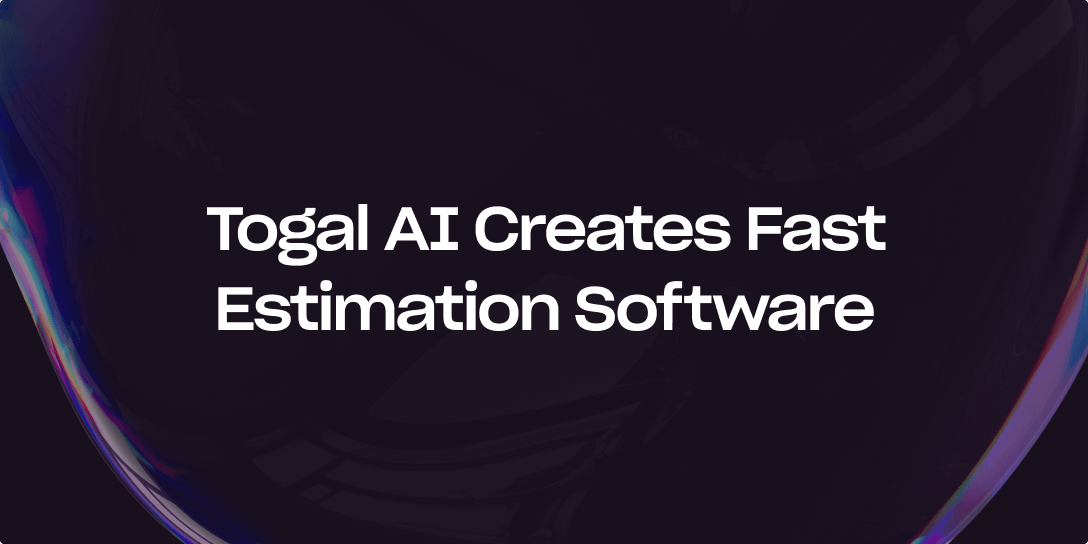
As technology continues to evolve, so does the CRM landscape. New advancements and features constantly emerge, making it crucial for brokers to stay updated on the latest trends. Some of the technological impacts that are shaping CRM for commercial real estate include:
Mobile Capabilities
With the rise of remote work and increasing reliance on mobile devices, having a mobile-friendly CRM is crucial for brokers. A mobile app allows brokers to access client data and manage deals on-the-go, enhancing productivity and responsiveness.
Artificial Intelligence (AI) Integration
AI-powered CRMs can analyze data from various sources to provide insights into client behavior, market trends, and deal performance. This integration enables brokers to make data-driven decisions and improve their overall business strategies.
Virtual Reality (VR) Technology
Some CRMs are incorporating VR technology to create immersive property tours for clients, allowing them to virtually view properties from anywhere in the world. This feature can save time and resources, making it easier for brokers to showcase properties to potential buyers or tenants.
Key Features of a Commercial Real Estate CRM
When searching for the best CRM for commercial real estate, certain features are essential to ensure that the platform meets the unique demands of the industry. Here’s a detailed breakdown of the critical features you should prioritize:
Contact Management
A solid contact management system is the backbone of any effective CRM. Look for features such as:
- Detailed Client Profiles: Create comprehensive profiles that include contact information, communication history, and notes from past interactions.
- Segmentation Capabilities: Organize your contacts into specific groups based on criteria like purchase history, deal type, or location to tailor your marketing efforts effectively.
- Communication History Tracking: Keep a log of all interactions with clients, including emails, phone calls, and meetings, ensuring that you have a complete picture of each relationship.
- Automated Follow-Up Reminders: Set up reminders for follow-ups, ensuring that no potential lead falls through the cracks.
Deal Tracking
Managing deals efficiently is critical in commercial real estate. Your CRM should have:
1. https://cafekinhdoanh.net/mmoga-the-best-crm-for-mortgage-brokers-boost-efficiency-close-more-deals
2. https://cafekinhdoanh.net/mmoga-the-best-crm-for-shopify-boost-your-ecommerce-success
4. https://cafekinhdoanh.net/mmoga-what-is-the-best-crm-for-small-businesses
- A Comprehensive Pipeline Management System: Visualize your sales pipeline and understand where each deal stands, from initial inquiry to closing.
- Deal Stage Progression Tracking: Monitor each deal’s progression through various stages, allowing you to identify bottlenecks in your sales process.
- Collaboration Tools: Facilitate communication among team members working on the same deal, ensuring everyone is on the same page.
- Custom Workflow Automation: Streamline processes by automating repetitive tasks related to deal management.
Property Management
A CRM designed for commercial real estate should integrate with property databases, offering features like:
- Property Search Functionalities: Quickly find properties based on specific criteria, making it easier to match clients with listings.
- Detailed Property Profiles: Maintain comprehensive records for each property, including photos, descriptions, and market data.
- Market Data Integration: Access up-to-date market trends and analytics to inform your strategies and provide clients with valuable insights.
Marketing Automation
To nurture leads effectively, a CRM should provide:
- Advanced Email Marketing Capabilities: Create and send targeted email campaigns to specific segments of your audience.
- Drip Campaign Functionalities: Automate a series of emails that guide leads through the sales funnel over time.
- Social Media Integration: Connect your CRM with social media platforms to manage your online presence and engage with clients.
- Lead Scoring Features: Prioritize leads based on their engagement levels and likelihood to convert, helping you focus your efforts where they matter most.
Reporting and Analytics
Data-driven decision-making is vital. Your CRM should offer:
- Robust Reporting Tools: Generate reports that track key performance metrics, such as lead conversion rates, deal closure times, and client satisfaction.
- Trend Analysis Features: Identify patterns in your sales data to understand what strategies are working and where improvements can be made.
- Insights for Informed Business Decisions: Use analytics to guide your business strategies, ensuring that you make decisions based on concrete data rather than intuition alone.
Mobile Accessibility
In today’s fast-paced environment, mobile access is crucial. Ensure that the CRM you select has:
- A User-Friendly Mobile App: Access your CRM on-the-go to manage deals, properties, and client interactions from anywhere.
- Features for On-the-Go Management: Ensure the mobile app allows you to update information, track deals, and communicate with clients while away from your desk.
Top CRM Platforms for Commercial Real Estate Brokers

Navigating the crowded CRM market can be daunting, but several platforms stand out as the best CRM for commercial real estate brokers. Here’s a look at the top contenders:
Salesforce
Salesforce is renowned for its robust CRM capabilities and offers a flexible, cloud-based solution tailored for the commercial real estate industry. Its features include:
- Comprehensive contact management
- Opportunity tracking
- Email integration
- Advanced reporting capabilities
Salesforce also offers a wide range of customization options, allowing you to tailor the platform to your specific needs. This flexibility makes it a favorite among larger brokerages with complex requirements.
HubSpot
HubSpot provides an all-in-one CRM platform that includes a suite of tools for managing client relationships, streamlining transactions, and supporting targeted marketing efforts. Its user-friendly interface and extensive app integrations make it a popular choice among commercial real estate firms.
HubSpot’s marketing automation capabilities are particularly strong, enabling brokers to create personalized marketing campaigns that resonate with their audience.
Apto
Designed specifically for commercial real estate brokers, Apto offers a web-based CRM solution that integrates seamlessly with Salesforce. Key features include:
- Appointment scheduling
- Automated workflows
- Renewal management
- Robust back-office functionality
Apto is known for its user-friendly design and focus on the unique needs of commercial real estate, making it an excellent choice for brokers looking for specialized solutions.
ClientLook
Formerly known as Buildout, ClientLook excels in managing contacts, properties, and deals within a unified system tailored for commercial real estate. Its strong emphasis on client relationships and collaboration tools makes it a compelling option.
ClientLook’s intuitive interface allows brokers to manage their entire business from one platform, enhancing efficiency and productivity.
AscendixRE
Built on Salesforce and Dynamics 365, AscendixRE is a highly customizable CRM solution designed for the unique needs of commercial real estate brokers. Its robust features include:
- Contact management
- Dashboard reporting
- Commission tracking
- Property listing portals
AscendixRE stands out for its flexibility, allowing brokerages to tailor the platform to fit their specific workflows and requirements.
Freshworks CRM
Freshworks CRM stands out with its user-friendly interface and powerful sales and marketing automation capabilities. While not exclusively focused on commercial real estate, its flexible customization options make it a viable choice for brokers.
1. https://cafekinhdoanh.net/mmoga-the-best-crm-for-mortgage-brokers-boost-efficiency-close-more-deals
2. https://cafekinhdoanh.net/mmoga-what-is-the-best-crm-for-small-businesses
5. https://cafekinhdoanh.net/mmoga-the-best-crm-for-shopify-boost-your-ecommerce-success
The platform’s AI-driven insights can help brokers identify trends and optimize their sales strategies effectively.
Zoho CRM
Zoho CRM offers a comprehensive platform catering to the diverse needs of commercial real estate brokers. Key features include:
- Lead management
- Workflow automation
- Project management
- Advanced analytics
Zoho’s affordability combined with its extensive feature set makes it an attractive option for smaller brokerages or those just starting.
Choosing the Right CRM for Your Commercial Real Estate Business

Selecting the best CRM for commercial real estate requires careful consideration of several factors. Here’s how to ensure you make the right choice:
Business Size and Transaction Volume
Ensure the CRM you choose can scale with your business growth and handle your transaction volume. Look for platforms that offer tiered pricing and the ability to add users or expand functionality as your needs evolve. If your brokerage is small but plans to grow, consider a solution that can adapt as you bring on more agents and clients.
Budget and Pricing Plans
Establish a clear understanding of your budget and review the pricing structures of different CRM providers. Look for platforms that offer transparent and predictable pricing that aligns with your financial goals. Be aware of any hidden fees, especially for integrations or additional features.
Team Size and User Experience
Consider the size of your team and the user-friendliness of the CRM. Opt for a platform that is intuitive and easy to adopt, minimizing the learning curve for your agents and ensuring high user adoption. A system that is difficult to navigate can lead to frustration and hinder productivity.
Integration with Existing Tools
Assess how the CRM integrates with your current systems, such as email, calendars, and property databases. Seamless integration can significantly improve efficiency and prevent data silos. Ensure that the CRM you choose can work in harmony with the tools your team already uses.
Customer Support and Training
Reliable customer support and comprehensive training resources are essential for the successful implementation and ongoing use of your CRM. Prioritize platforms that offer robust onboarding, documentation, and ongoing assistance. A responsive support team can make a significant difference, especially during the initial setup phase.
Frequently Asked Questions
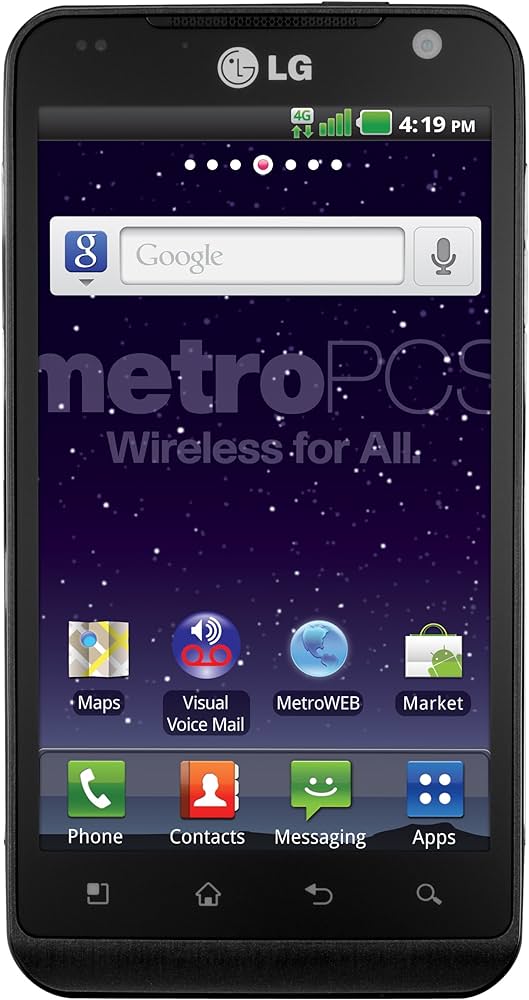
Q: What are the benefits of using a CRM for commercial real estate?
A: The best CRM for commercial real estate can streamline operations, boost productivity, enhance client relationships, and increase revenue.
Q: What are the key features to look for in a commercial real estate CRM?
A: Essential features include contact management, deal tracking, property management, marketing automation, reporting and analytics, and mobile accessibility.
Q: How do I choose the right CRM for my commercial real estate business?
A: Consider your business size, budget, team size, integration needs, and customer support requirements to find the best fit. It’s also helpful to demo multiple platforms and gather feedback from your team before making a decision. Lastly, make sure the CRM aligns with your business goals and workflows. With careful consideration and research, you can find the perfect CRM for your commercial real estate needs.
Conclusion
In the highly competitive world of commercial real estate, selecting the best CRM can be a game-changer for your brokerage. By carefully evaluating the CRM options available, you can streamline your operations, nurture stronger client relationships, and ultimately close more deals. Explore the top CRM platforms discussed in this guide, and choose the one that aligns best with your specific requirements. With the right CRM in place, you’ll be well-positioned for greater efficiency, productivity, and long-term success in the dynamic commercial real estate market. Embrace the transformative power of CRM technology, and watch your brokerage thrive in 2024 and beyond.



